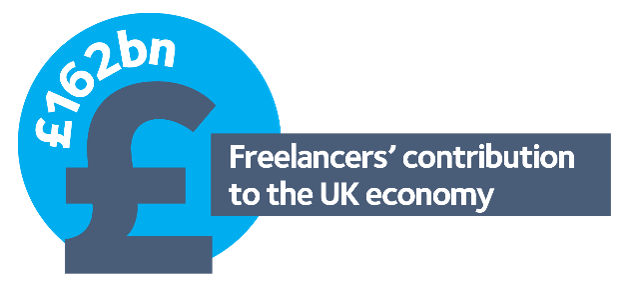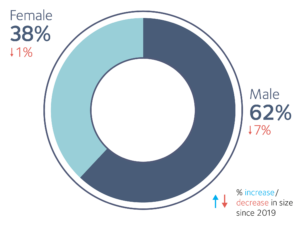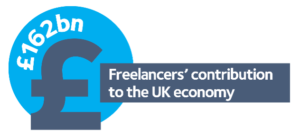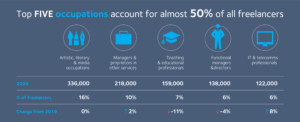
I have had the privilege to work across the enterprise education and business support scene for over 13 years now, not only in HE but around the world with the British Council and NESTA.
Though one thing does not seem to have changed in all this time. I still hear the same terms from some of our colleagues about how we should be supporting ‘real businesses’!
This has (and still does) make my blood curdle. I know what they are ‘trying’ to say (they mean companies that can raise investment, employ people and make great case studies or impact stories) and supporting these businesses is something we do. But what they forget to acknowledge is that, in 2020, there was a whopping 2.2 million people in the UK working as Freelancers (with 44% being female). This is basically HALF (49% actually, according to IPSE) of all solo self-employed people during that year (yes there were around 4.4 million solopreneurs recorded in 2020 according to the ONS).

And, these past couple of years have made many people sit up and take stock of life in the fast lane, waiting on furlough street or basically realising that there is more to the ‘Life/Work’ balance and are seizing the opportunity to make the change. Freelancing is a great route to do just that.
What does it take to be Freelancer?
We know that you need your own set of skills and a passion to deliver, but what many people forget is that like ALL business, you still need some basic enterprise acumen, a deal of patience, some wicked marketing tricks, a bit more patience, understanding of finance and even more patience.
Taking the leap from employment to self-employment, no matter the form you choose, is an almighty big step for anyone, so having the offer of support is vital for many new venturers to help them explore and succeed.
At NTU, we realised that we had a high number of Future Freelancers, when in lockdown we decided to work with Alison Grade (of the Freelance Bible) and offer a specialist programme just for those who are or who are seeking to become Freelancers. Now, this was not done because we felt they needed something different, but we were aware that they felt their business model did not always fit into the ‘normal’ business support offer. So, when we had over 370 people register for our online programme (pretty much all from Nottingham), we knew we had done the right thing.
Future Freelance support with NTU Enterprise
We are now offering this programme every year with additional benefit to those that attend and complete by getting them registered on the Freelancer Club platform with the brilliant Matt Dowling, which promotes jobs, collaborations and offers additional business support post programme.
IPSE believe that our Freelancers could be contributing as much as £162 Billion to the UK economy, which leads me to note that so many of our organisations and ‘real’ businesses rely on Freelancers to a; get them going at the start, b; step in and deliver on skills that are not within the organisation and c; make up quite a chunk of our education (circa 180,000 teaching and education professionals) and healthcare system (healthcare professionals as freelancers rose by 19% in 2020).

So, when we talk about supporting ‘real’ businesses, we need to remind our colleagues that without our Freelancers, we probably would not support quite as many or such good ‘real’ businesses!

Sources of Data and additional information/reading:
IPSE 2020 report https://www.ipse.co.uk/policy/research/the-self-employed-landscape/the-self-employed-landscape-report-2020.html
Don’t disappoint me: https://dontdisappoint.me.uk/resources/lifestyle/freelancing-statistics-uk/#:~:text=This%20means%20that%2049%25%20of,employed%20workers%20in%20the%20Uk
All figures from IPSE report 2020
